Introducing the Sixth Cohort of Bloomberg Data Science Ph.D. Fellows (2023-2024) | Bloomberg LP
Excerpt
Bloomberg announces the nine Bloomberg Data Science Ph.D. Fellowship recipients for 2023-2024, making an early investment in their careers.
Bloomberg is pleased to announce the newest cohort of nine early-career researchers who have received the Bloomberg Data Science Ph.D. Fellowship for 2023-2024.
Now in its sixth round, the Fellowship is part of the firm’s efforts to engage the academic research community. The program awards financial aid and professional support to Fellows as they research their interests and gain real-world professional experience over the course of the academic year.
Each of these highly motivated students is engaged in research relating to ongoing areas of interest at Bloomberg. In addition to providing mentorship and professional development for the next generation of data science talent, the Fellowship has helped build relationships between Bloomberg and academic researchers at numerous institutions around the globe.
The goal of the Fellowship is to provide support and encouragement for a successful Ph.D. candidate, resulting in groundbreaking publications in both academic journals and conference proceedings, application development, open source contributions, and other forms of research dissemination. Participants were selected by a committee of Bloomberg data scientists from across the organization. They will also be supported through mentorship, career counseling, and research internships.
Read about our past Data Science Ph.D. Fellowship awardees:
Data Science Ph.D. Fellows for 2023-2024
We asked this year’s Fellows to share a bit about themselves and their research interests.
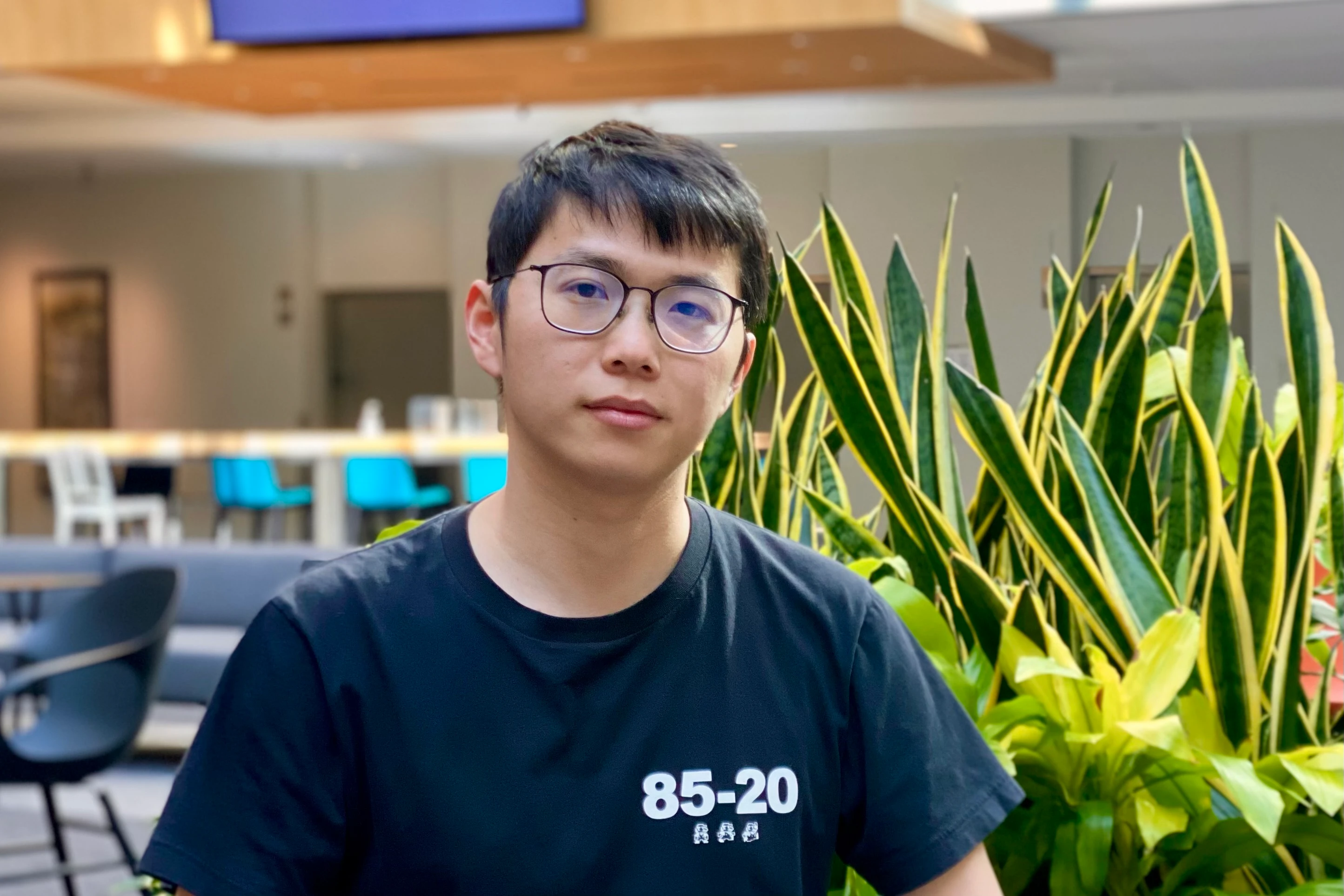
Pan Lu is a Bloomberg Data Science Ph.D. Fellow.
Pan Lu
UCLA Samueli School of Engineering’s Computer Science Department | UCLA NLP
What made you want to apply for the Bloomberg Data Science Ph.D. Fellowship?
I was drawn to the Bloomberg Data Science Ph.D. Fellowship for its prestige and the opportunity it provides to tackle challenging problems in data science and AI. The focus on real-world applications of these technologies, particularly in data-driven fields, aligns perfectly with my research ambitions.
What are your topics of interest in your research?
My research is centered on overcoming the current limitations of large language models (LLMs), such as their inability to access updated information or conduct in-depth reasoning. I’m developing a framework to enhance LLMs with compositional reasoning abilities, enabling them to effectively integrate external tools for advanced mathematical and scientific problem-solving.
What are the applications and potential impact of the research?
The research can be applied across various scenarios, offering direct benefits to the finance industry. Examples include automatic understanding of diverse resources, such as news articles, trading data, and financial statements, as well as precise reasoning over multiple pieces of information to provide valuable support to financial decision-making.
What is your goal for the Fellowship?
The primary goal of my research is to build machines that can reason and collaborate with humans for the common good, particularly in the domains of mathematics, science, and education.

Rattana Pukdee is a Bloomberg Data Science Ph.D. Fellow.
What made you want to apply for the Bloomberg Data Science Ph.D. Fellowship?
I applied for the Bloomberg Data Science Ph.D. Fellowship because of the unique opportunity it offers for interdisciplinary collaboration, especially the chance to work with other Fellows and Bloomberg’s AI researchers.
What are your topics of interest in your research?
My research is focused on developing a theoretical framework and practical algorithms for integrating domain knowledge into machine learning models.
What are the applications and potential impact of the research?
The primary application of my research is the creation of more robust and reliable machine learning systems. By infusing domain knowledge into these systems, we can significantly improve their performance, especially in complex and dynamic environments.
What is your goal for the Fellowship?
My goal for the Fellowship is to engage in meaningful collaborations and learn from Bloomberg’s AI experts, focusing on developing models that are not only theoretically sound, but also practical.
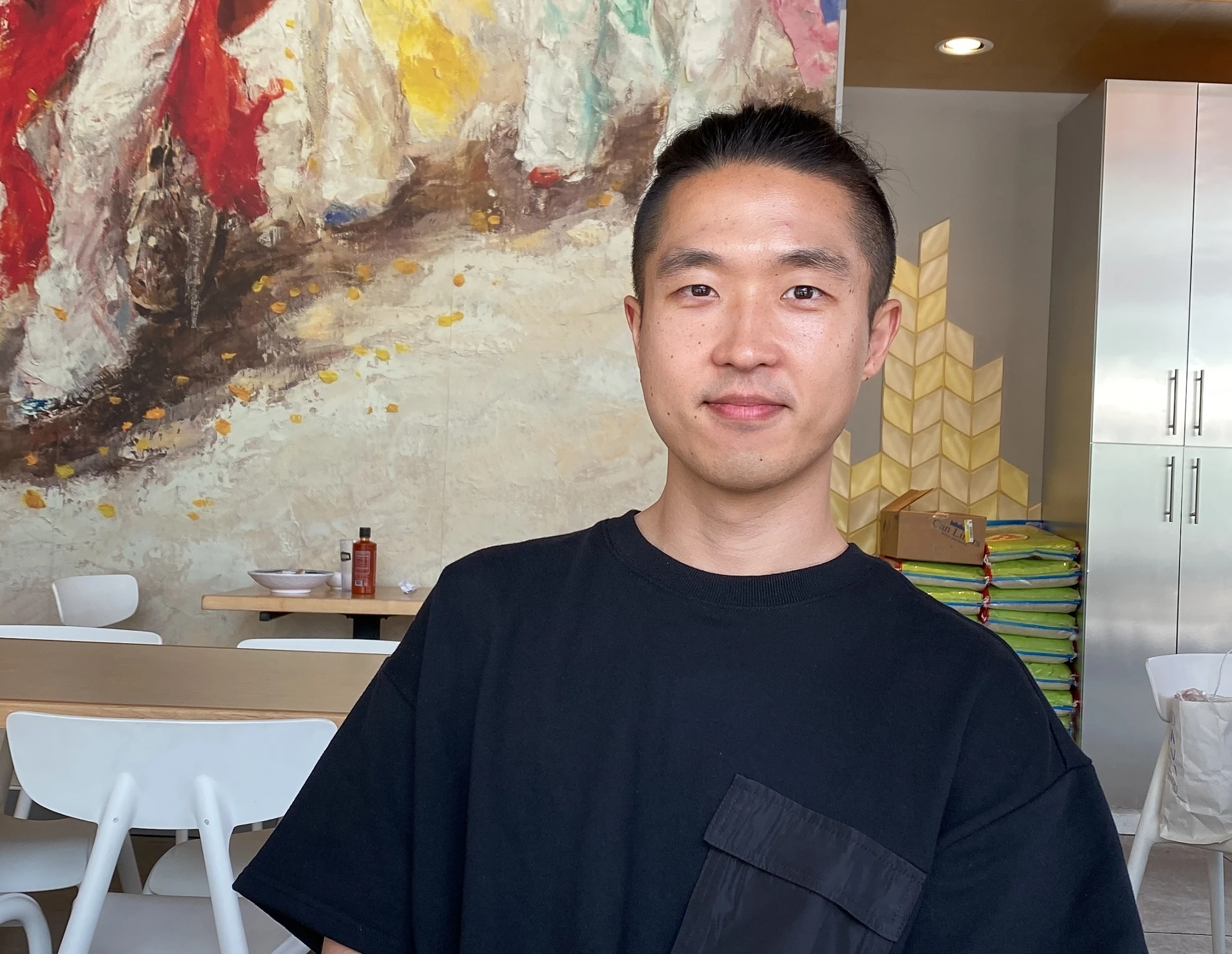
Jaemin Cho is a Bloomberg Data Science Ph.D. Fellow.
Jaemin Cho
University of North Carolina at Chapel Hill’s Department of Computer Science | UNC NLP’s MURGe-Lab (Multimodal Understanding, Reasoning, and Generation for Language Lab)
What made you want to apply for the Bloomberg Data Science Ph.D. Fellowship?
I heard about the program from my advisor (Professor Mohit Bansal) and several labmates who previously received the Bloomberg Data Science Ph.D. Fellowship (Shiyue Zhang and Hao Tan; Shiyue is now working at Bloomberg).
I am also interested in research opportunities at Bloomberg related to tackling real-world problems with multimodal financial data.
What are your topics of interest in your research?
My research interests broadly lie in the field of multimodal machine learning. It’s about helping AI systems to understand and generate different types of data, such as text, images, audio, etc.
My recent papers study developing models that can handle multiple modalities and tasks, as well as evaluation benchmarks for multimodal models.
What are the applications and potential impact of the research?
Intelligent multimodal models would become more accurate assistants in many human-AI collaboration scenarios, such as automatically recommending relevant information when writing documents or providing editing suggestions when drawing diagrams.
Developing evaluation benchmarks for these multimodal models would help us understand what current models can do and how we should improve them, ultimately making them more reliable.
What is your goal for the Fellowship?
I plan to use the Fellowship opportunity to study how to improve multimodal AI systems to be more accurate, efficient, and reliable.

Bin Wu is a Bloomberg Data Science Ph.D. Fellow.
What made you want to apply for the Bloomberg Data Science Ph.D. Fellowship?
Bloomberg is a top-tier company, which aims to provide high-quality services for its customers. Moreover, Bloomberg provides a unique opportunity to get a deep look into the user experience, which motivates me to explore a user-satisfied intelligent system.
What are your topics of interest in your research?
LLMs receive tremendous attention due to their strong abilities, but most of them provide a general response, ignoring the deep understanding of each user’s unique objectives. My interest lies in the personalisation of LLMs, while guaranteeing the protection of users’ personal information and intellectual property. In my mind, a perfect intelligent system is the one that requires the least effort from the user, while providing the most satisfying results.
What are the applications and potential impact of the research?
Nowadays, it is still difficult for users, especially for non-AI-experts, to receive satisfactory results from LLMs. Personalisation of LLMs, on an opt-in basis, would significantly reduce users’ effort to describe their query and provide customized services to increase users’ satisfaction.
What is your goal for the Fellowship?
I would like to explore the personalisation of LLMs with the excellent AI researchers and engineers from Bloomberg.
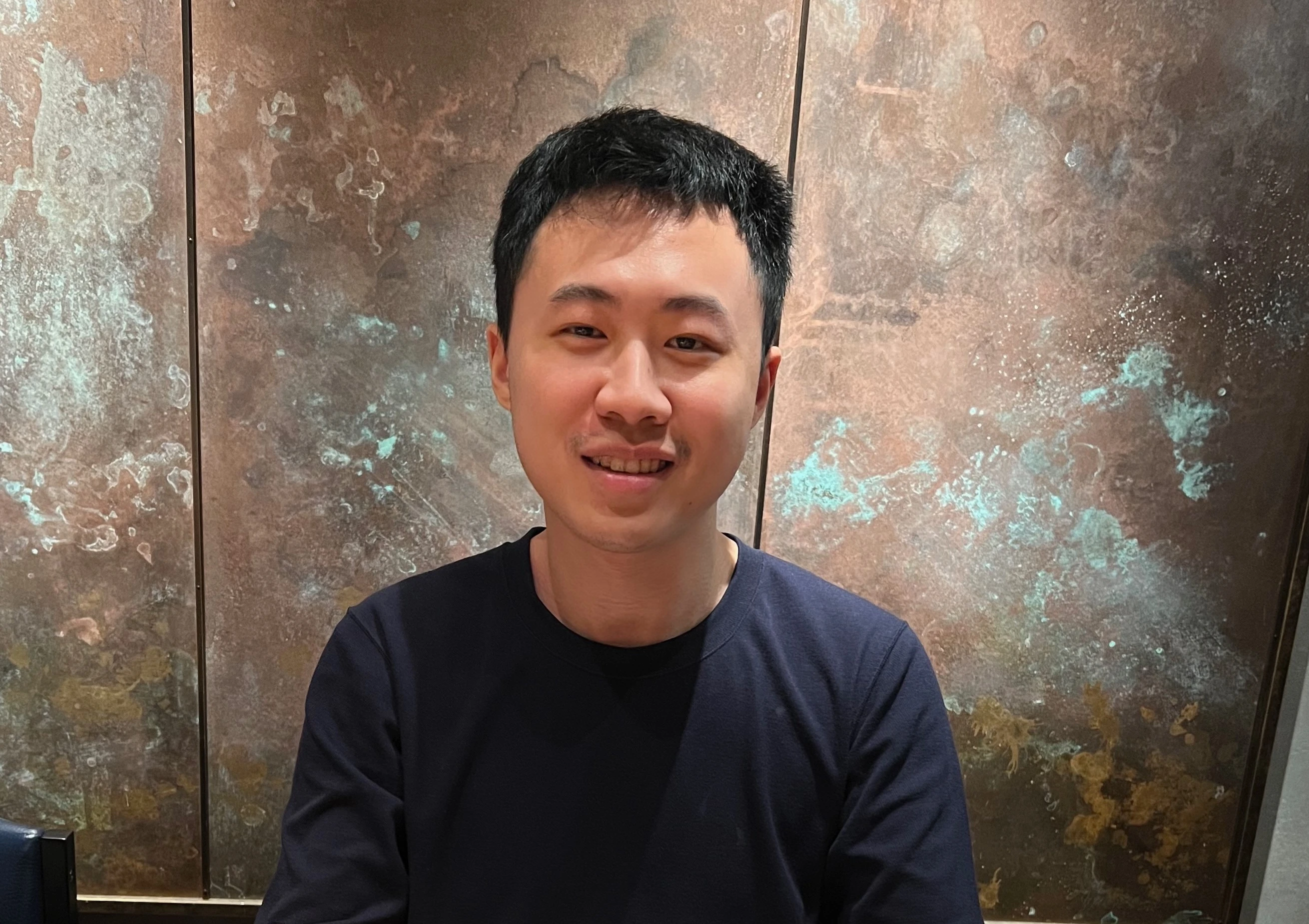
Shuyang Cao is a Bloomberg Data Science Ph.D. Fellow.
Shuyang Cao
University of Michigan’s Electrical Engineering & Computer Science Department | Michigan AI Laboratory + LAUNCH Lab (LAnguage Understanding and generatioN researCH)
What made you want to apply for the Bloomberg Data Science Ph.D. Fellowship?
The Bloomberg Data Science Ph.D. Fellowship caught my attention due to Bloomberg’s status as a leading information provider in the financial sector. I am intrigued by how Bloomberg integrates data science research with product development to enhance user experiences.
What are your topics of interest in your research?
My topics of interest lie in the domains of text summarization and generation. I am particularly focused on advancing long document summarization systems and improving the trustworthiness of the outputs they generate.
What are the applications and potential impact of the research?
The objective of my research is to develop systems capable of generating concise and accurate summaries of extensive documents, including daily news and lengthy reports. It has significant implications for a wide range of users, from general readers to researchers, enabling them to quickly capture important information, acquire knowledge in a timely manner, and make informed decisions.
What is your goal for the Fellowship?
My goal for this Fellowship is to expand the scope and depth of my research within the realm of AI and data science. I’m eager to learn from other Fellowship recipients and to share insights that could be mutually beneficial. I also aim to gain an understanding of AI applications in the financial industry, which I believe will be invaluable for my future career.

Ashim Gupta is a Bloomberg Data Science Ph.D. Fellow.
What made you want to apply for the Bloomberg Data Science Ph.D. Fellowship?
I wanted to build on my previous internship experience with Bloomberg’s AI team, where I collaborated closely with their scientists and had a great overall experience. Applying for the Bloomberg Data Science Ph.D. Fellowship provides me with an opportunity to extend this collaboration and focus on my research into enhancing the robustness and efficiency of real-world NLP models.
What are your topics of interest in your research?
My research focuses on evaluating and enhancing the stability and robustness of NLP models across diverse tasks and model types. This encompasses the development of improved methods for robustness evaluation, coupled with improving the inherent robustness of the models. In addition, my focus extends to crafting smaller, more efficient models that not only match the accuracy of their larger counterparts but also exhibit equal robustness.
What are the applications and potential impact of the research?
Applications such as news classification and QA systems operate in constantly changing environments, where the input distribution is continually evolving. Also, the safe deployment of such systems requires preventing any adversarial actors from gaining control or manipulating them. My doctoral research concentrates on creating models that are not only high-performing but also safe and resilient for deployment.
What is your goal for the Fellowship?
My goal for the Fellowship is to advance research in the field of robust NLP and make meaningful contributions to the academic community. With the help of Bloomberg’s stellar team of AI scientists and engineers, I want to understand some of the real-world challenges in deploying large AI systems and work on solving problems that we mutually find interesting.
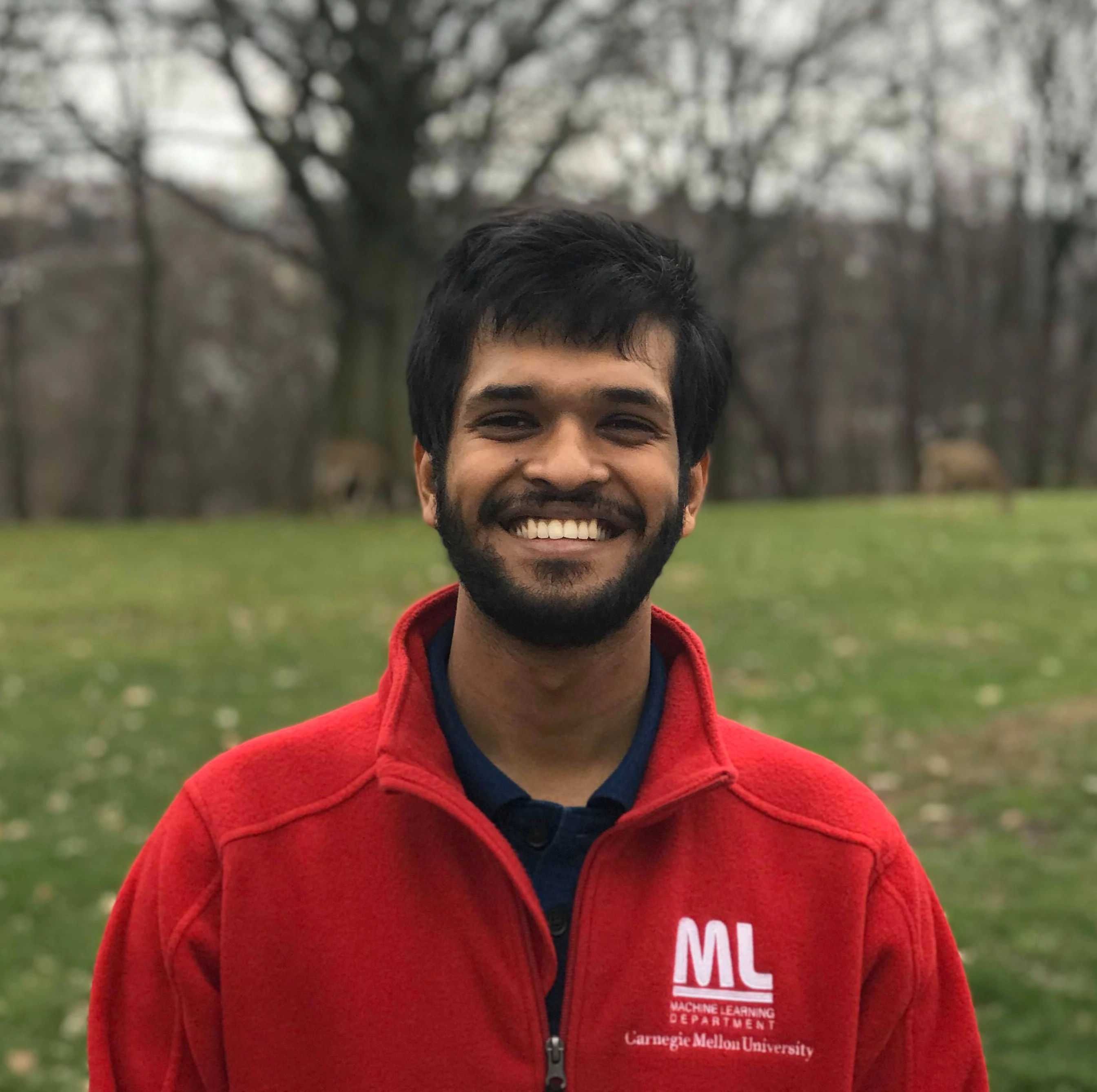
Saurabh Garg is a Bloomberg Data Science Ph.D. Fellow.
What made you want to apply for the Bloomberg Data Science Ph.D. Fellowship?
I am Saurabh Garg, a fifth-year Ph.D. student at Carnegie Mellon University’s Machine Learning Department. I applied to the Bloomberg Data Science Ph.D. Fellowship to secure funding for the final years of my research, which aligns with Bloomberg’s commitment to advancing data science and machine learning. This Fellowship not only provides financial support but also an opportunity for collaboration and exchange of ideas with Bloomberg’s experts. Engaging with Bloomberg’s AI researchers will offer valuable insights into real-world applications of my work and contribute to Bloomberg’s innovative endeavors in data science.
What are your topics of interest in your research?
My research focuses on the robustness of deep learning systems against distribution shifts, with a recent focus on Large Language Models (LLMs) and Vision Language Models (VLMs). My research involves leveraging unlabeled data to improve these models, especially where scaling pretraining data does not solve the problem or is simply not applicable, as well as developing new approaches to assess the performance of foundation models.
What are the applications and potential impact of the research?
My research advances can have a direct impact on ML applications at Bloomberg that deal with distribution shift problems prevalent in the financial markets. In particular, identifying and adapting to distribution shifts in trending events from social media posts and news articles can help models better utilize historical data to predict market behavior.
What is your goal for the Fellowship?
My overarching research ambition is to advance the science of modern machine learning. For the duration of my Fellowship, my goal is to focus on distribution shift challenges in LLMs and VLMs.
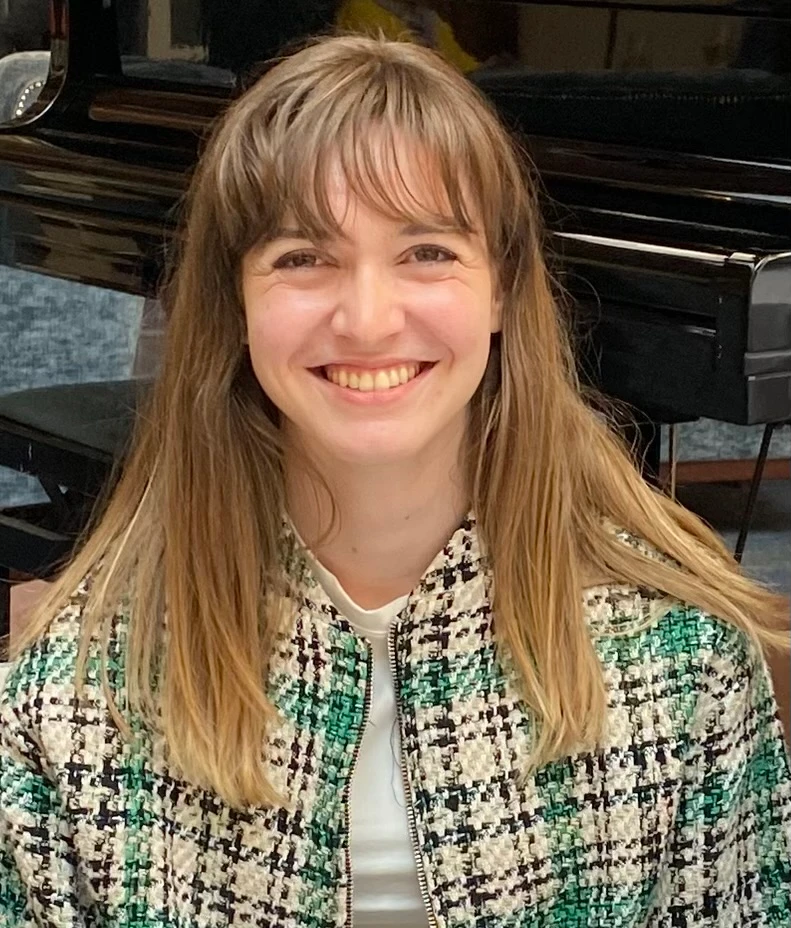
Claire Barale is a Bloomberg Data Science Ph.D. Fellow.
What made you want to apply for the Bloomberg Data Science Ph.D. Fellowship?
I applied for the Fellowship because I think my research focus aligns very well with Bloomberg’s research work. During my Ph.D., I have been interested in the application of NLP in the legal domain, and Bloomberg researchers are very active in this area.
What are your topics of interest in your research?
I am interested in domain-specific knowledge-intensive tasks. My research interests include information extraction, indirectly and weakly supervised learning, as well as domain-specific language models. During my Ph.D. project, I am working on advancing legal information extraction with a specific focus on designing and implementing NLP-based functionalities in the legal workflow. I have been exploring ways to inform, speed up. and improve the transparency of the refugee claim process.
What are the applications and potential impact of the research?
The long-term research goal is to use cutting-edge NLP methods to enhance legal processes and to comprehend elements of legal reasoning. In practical terms, this currently translates into use cases such as legal search, retrieval of past cases, or enhanced case reviews and analysis. These use cases trigger research efforts in specific areas of NLP, such as named-entity recognition or law-oriented pretraining of language models.
What is your goal for the Fellowship?
Through the Fellowship, I am hoping to benefit from the experience and collaboration with Bloomberg’s researchers. I also hope to receive industry feedback to enhance functionalities, particularly in refining legal database searches. Another objective is to connect with other Ph.D. students who share similar interests.

Terrance Liu is a Bloomberg Data Science Ph.D. Fellow.
What made you want to apply for the Bloomberg Data Science Ph.D. Fellowship?
I wanted to meet and collaborate with Bloomberg researchers and Fellowship recipients to understand how privacy-preserving machine learning can be applied to their work, as well as to work together to understand what privacy risks can arise when developing algorithms for the data that Bloomberg has access to.
What are your topics of interest in your research?
Privacy-preserving machine learning — specifically, differentially private synthetic data and reconstruction attacks.
What are the applications and potential impact of the research?
Greater availability of data has advanced the ways in which organizations and companies conduct statistical analyses and build machine learning models. However, the growing use of data poses privacy risks for the individuals from whom it was collected. Therefore, my work is aimed towards helping industry researchers identify and mitigate privacy risks in the algorithms they deploy.
What is your goal for the Fellowship?
I want to collaborate with Bloomberg researchers to identify the most pertinent privacy issues that the financial industry faces with respect to AI.